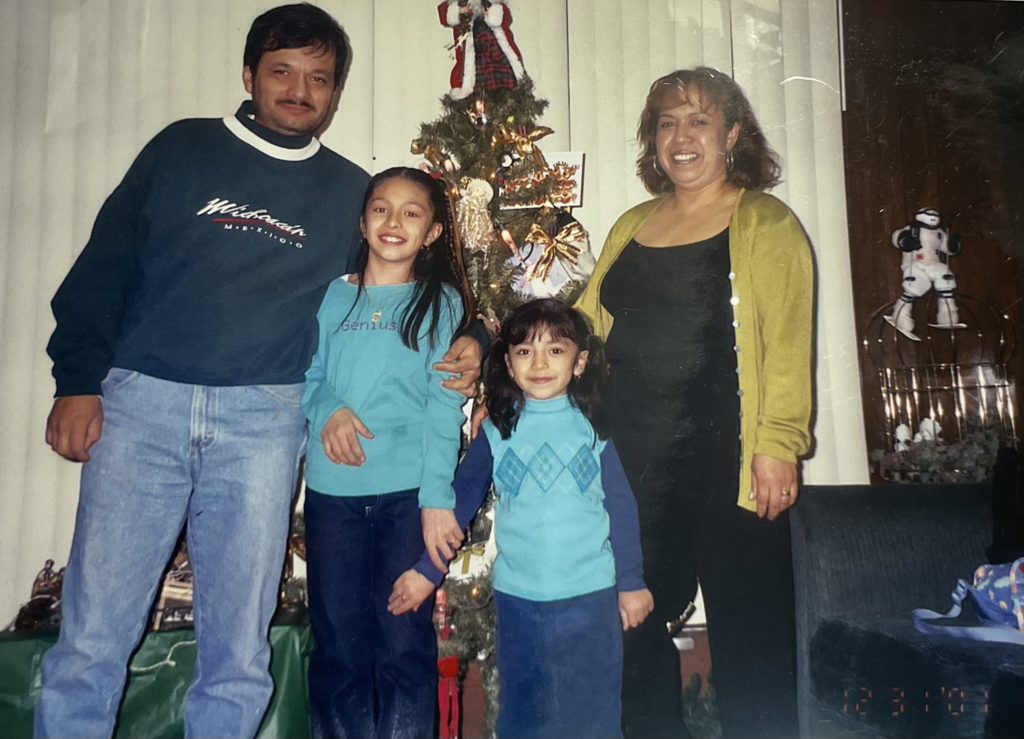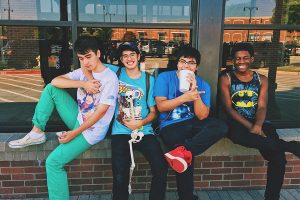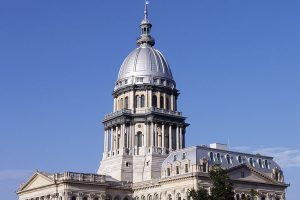Reflections on Immigration from a Mixed-Status Family Member
Publisher: Jayre Vazquez

During this time in our country, we find that there are many significant systems being impacted in the Health and Human Services Social Impact sector, which pushes us as an organization to be creative in our ability to adhere to our mission at ICOY- to champion the safety and well-being of all Illinois youth, children and families.
The topic of immigration has especially been top of mind of due to the current political climate under the Trump Administration, including the emphasis on enforcement, restriction, and deterrence that has an immense shift from previous administrations’ more reform-oriented approaches.
Take a moment to read one of our intern’s powerful personal reflection on immigration from the lens of a mixed-status family. This is a story of resilience, challenges, and hope. Don’t miss this insightful perspective!
Growing up, our household had hope, but as I’ve gotten older, I’ve learned that hope can be deceiving.
Throughout my life, my parents’ undocumented status exacerbated my family’s financial hardships. Algún día vamos a tener papeles, y todo va a estar mejor. One day, they’d say, they would have papers, and everything would be better. They. They. They. I had something that they did not: citizenship, an opportunity held over their heads, night and day. I did not carry their burden, and so, as a child, I began to despise myself.
I’m part of a mixed-status family, meaning our legal status varies within our family unit. I was born into a family of immigrants – the only one granted birthright citizenship through the 14th Amendment.
Birthright citizenship has impacted every aspect of my life. As a child, I did not have the vocabulary or adequate support systems in place to fully grasp my family’s circumstances. What made me so different from my family? Why was I consistently reassured that I was the “lucky” one? Where does “luck” stand when the ones you love the most are under constant fear? I wondered if this is what they imagined. Their eyes set on the country with opportunity, while the
hardships in their homeland continued to multiply. Their families, friends, and the community they’ve known their entire lives are left behind with one decision. Have I lived up to their sacrifice? I asked myself this much more harshly as a child. Learning of their hardships left me feeling as though I could heal their wounds by making their migration “worth” their sacrifice. As though I could determine the value, the “worth” of their sacrifice by what I could achieve with my birthright citizenship. Ultimately, I’ve struggled to feel as though I am enough.
I learned how to keep this secret. The threat of my family’s legal status falling into the wrong hands made it difficult to foster relationships and community. My mentor warned me not to write a blog post, “you don’t know what they’ll go after next.” So many years, hidden, retreating in fear. I feel and fear for our children, our parents, our families. I feel and I fear for our people.
The Trump administration is committed to “PROTECTING THE MEANING AND VALUE OF AMERICAN CITIZENSHIP” in ways that strip the inherent value all human beings possess. His attempts to “reclaim” the value of American Citizenship through the removal of birthright citizenship assume that people like myself, born into undocumented families, devalue American citizenship. The value I assumed from birthright citizenship, now being questioned by the Trump administration, reignites feelings of not being “enough.”
Being in a mixed-status family is a lifelong experience. While my family’s undocumented status has changed, the pain, fear, and frustrations of their former undocumented status still linger in my heart.
I thought the wounds from the limbo of illegality had mostly healed, leaving just a show of scars. But as the Trump administration made me realize – the wounds never healed; they just scabbed. And without hesitation, the administration ripped the scab apart just as fast as they intended to rip families apart.
Now an adult, the years I spent as a child fearing losing my family to deportation have manifested in various ways, such as intense anxiety and depression. Undocumented status, whether of your own or that of loved ones, exasperates every lived hardship.
It became our mantra: “Nuestra situación se mejora cuando nos lleguen los papeles” “Our situation will get better when our papers arrive.” I hope that one day, permanent residency and citizenship could heal the pain that came with my family’s undocumented status. As though leaving the limbo of illegality could resolve the strained relationships. As though permanent residency, years too late, could turn back time.
I’ve asked mi Papí that with now knowing the grief, fear, isolation, and obstacles that come with undocumented status, would he still have come to this country?
“Volvería a pasar por todo, solo para tener a las hijas que tengo hoy.” I’d go through everything again, just to have the daughters I have today.
Gracias Papi, gracias Mami. Gracias a mi hermana. Por la vida que todos ustedes me han dado, por sus esfuerzos en protegerme de sus dolores. Espero honrar sus sacrificios en mis esfuerzos por proteger a nuestro pueblo. Nuestros seres queridos, conocidos y desconocidos
Thank you Dad, thank you Mom. Thank you to my sister. For the life you all have given me, for your efforts in protecting me from your pains. I hope to honor your sacrifices in my efforts to protect our people. Our loved ones, known and unknown.
Existence is resistance. Our existence gives me hope.






